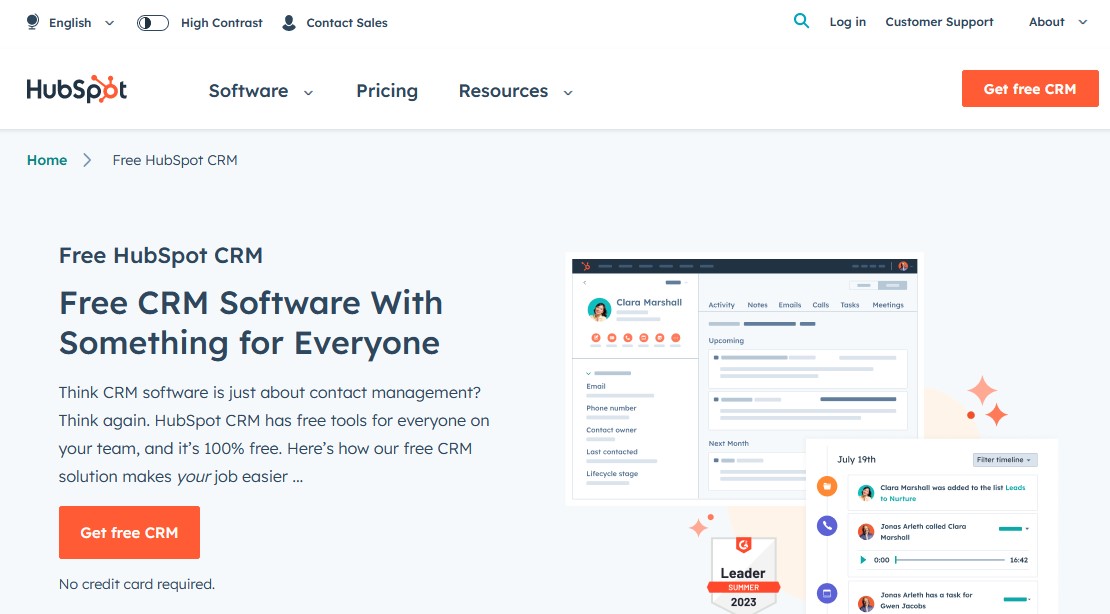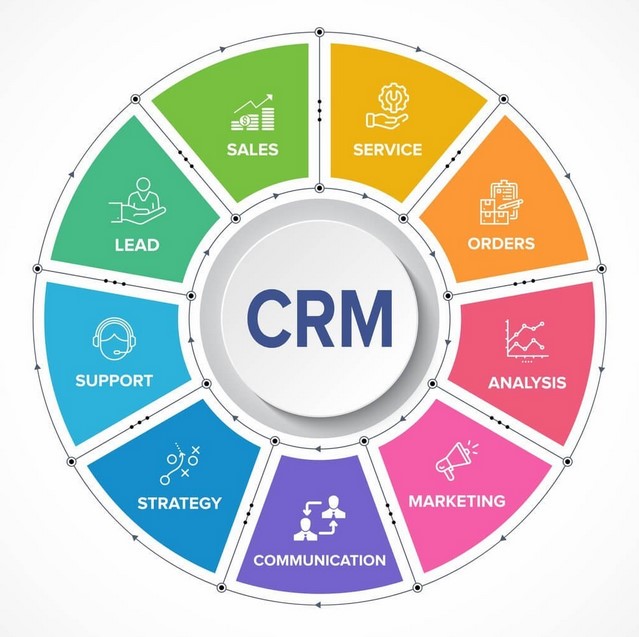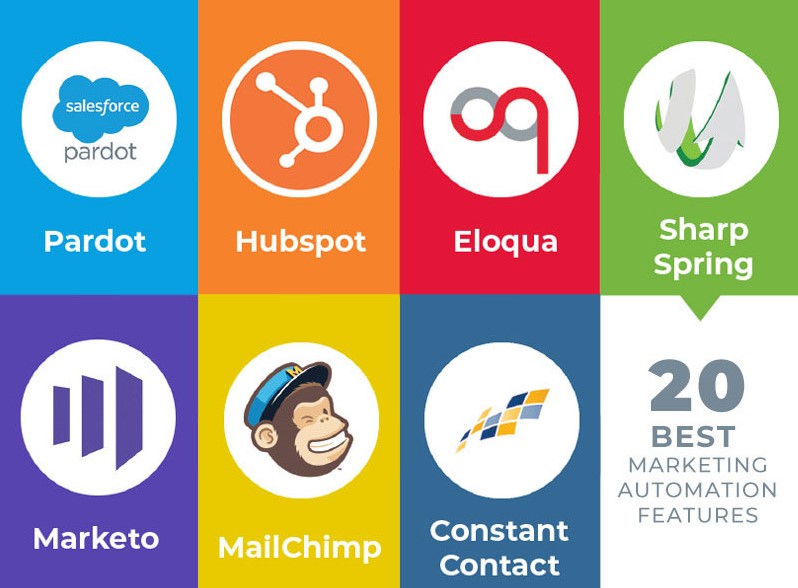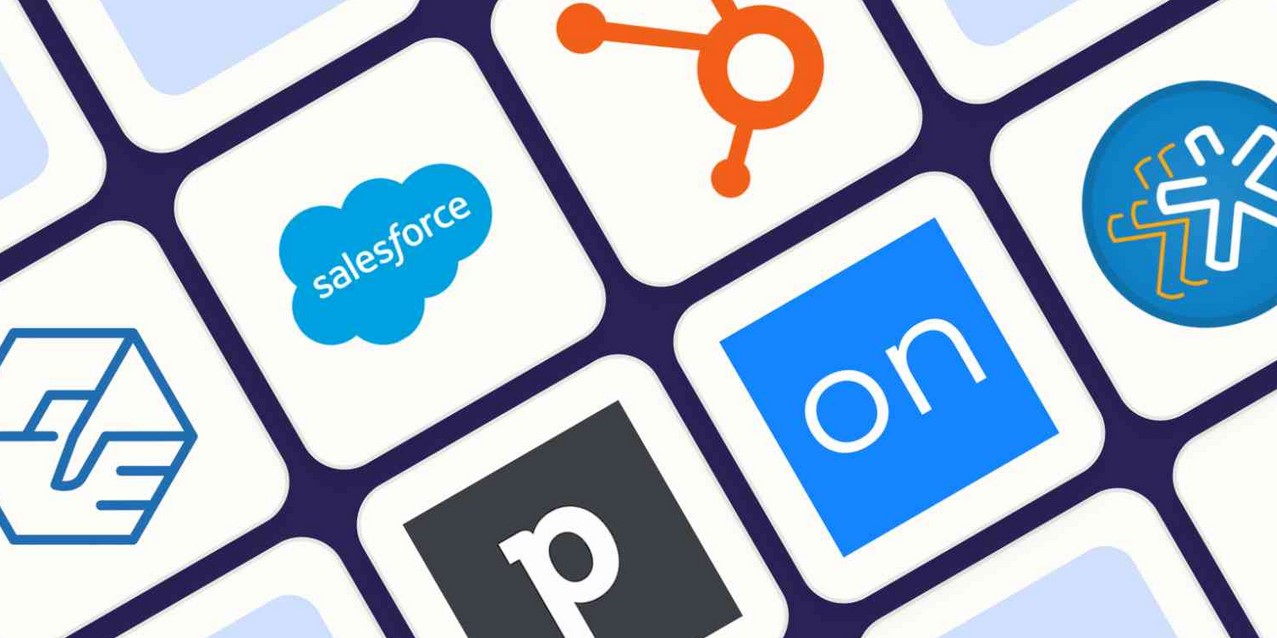In today’s fast-paced and highly competitive business landscape, companies are constantly seeking ways to streamline their sales processes and boost productivity. Enter Customer Relationship Management (CRM) systems with Sales Force Automation (SFA) capabilities – the ultimate combination for optimizing sales operations. By integrating CRM with the best SFA software, businesses can automate time-consuming tasks, enhance lead management, and improve overall customer interactions. In this article, we will explore some of the top CRM solutions that offer exceptional sales automation features to help businesses stay ahead in the game.
Understanding the importance of CRM and SFA
CRM (Customer Relationship Management) and SFA (Sales Force Automation) are both essential tools for businesses to effectively manage their customer relationships and drive sales. CRM helps businesses track and organize customer information, allowing them to better understand their customers’ needs and preferences. This enables businesses to provide personalized experiences, build stronger relationships, and ultimately increase customer loyalty.
SFA, on the other hand, focuses specifically on automating sales processes. It streamlines tasks such as lead management, opportunity tracking, and order processing, making it easier for sales teams to manage their pipeline and close deals more efficiently. By automating these processes, SFA frees up time for sales reps to focus on building relationships with customers and prospecting new leads.
Overall, CRM and SFA go hand in hand in helping businesses improve their customer relationships and boost sales performance. By implementing these tools effectively, businesses can gain a competitive edge by providing superior customer experiences while maximizing their sales efficiency.
Overview of CRM: What is it and why companies need it
CRM, or Customer Relationship Management, is a strategy and technology that helps companies manage their interactions and relationships with customers. It involves collecting and analyzing data about customers to gain insights into their preferences, behaviors, and needs. CRM systems provide tools for businesses to track customer interactions, manage sales leads, automate marketing campaigns, and provide better customer service.
Companies need CRM for several reasons. Firstly, it allows them to have a centralized database of customer information, which can be accessed by different departments within the organization. This enables better collaboration and communication between teams, leading to more efficient operations. Secondly, CRM helps companies improve their customer service by providing a holistic view of each customer’s history and preferences. This allows businesses to personalize their interactions and offer tailored solutions to meet individual needs. Lastly, CRM enables companies to analyze customer data and identify trends or patterns that can inform marketing strategies and drive business growth.
In conclusion, CRM is an essential tool for companies looking to enhance their customer relationships and drive business success. By leveraging technology to collect and analyze customer data, businesses can gain valuable insights that can inform decision-making processes across various departments. Ultimately, CRM helps companies deliver personalized experiences that build trust and loyalty with customers while also improving operational efficiency.
Benefits of Sales Automation Software (SFA)
Sales Automation Software (SFA) offers a range of benefits that can greatly enhance the efficiency and effectiveness of sales teams. One key advantage is improved productivity. SFA automates repetitive tasks such as data entry, lead management, and sales reporting, freeing up valuable time for sales reps to focus on building relationships with customers and closing deals. This increased productivity can lead to higher sales volumes and revenue for businesses.
Another benefit of SFA is enhanced accuracy and consistency in data management. By automating data entry and consolidation, SFA reduces the risk of human error and ensures that all information is accurate and up-to-date. This enables sales teams to make informed decisions based on reliable data, leading to more effective targeting, forecasting, and overall sales performance.
Furthermore, SFA provides valuable insights through analytics and reporting functionalities. Sales managers can track key metrics such as conversion rates, win rates, and pipeline velocity to identify areas for improvement and optimize their team’s performance. These insights enable proactive decision-making, allowing businesses to adapt their strategies in real-time to meet changing market conditions.
In summary, Sales Automation Software offers numerous benefits including increased productivity, improved data accuracy, and valuable insights through analytics. By leveraging these advantages, businesses can streamline their sales processes, drive revenue growth, and gain a competitive edge in today’s fast-paced business environment.
Top CRM with Best SFA options in the market
One of the top CRM systems with excellent SFA (Sales Force Automation) options in the market is Salesforce. Salesforce offers a comprehensive suite of tools and features designed to streamline sales processes and improve overall productivity. With its robust SFA capabilities, users can track leads, manage contacts, forecast sales, automate workflows, and analyze sales performance data.

Another CRM system worth considering for its strong SFA options is HubSpot. HubSpot’s CRM platform provides a range of features to help businesses effectively manage their sales activities. From lead generation and tracking to pipeline management and deal forecasting, HubSpot offers intuitive SFA tools that enable sales teams to work efficiently and close deals faster.
Both Salesforce and HubSpot have proven track records in delivering top-notch CRM solutions with powerful SFA capabilities. Ultimately, the choice between them would depend on your specific business needs, budget, and preferences. It’s always recommended to evaluate multiple options, consider user reviews, and even request demos before making a decision.
Key features to consider when choosing SFA
When choosing a Sales Force Automation (SFA) system, there are several key features to consider. Firstly, integration capabilities are crucial. Look for an SFA system that can seamlessly integrate with your existing CRM and other business systems to ensure smooth data flow and avoid duplications or inconsistencies.
Another important feature to consider is mobile accessibility. In today’s fast-paced business environment, it is essential for sales teams to have access to their SFA system on the go. Look for a solution that offers a mobile app or responsive design that allows sales representatives to update and access customer information from anywhere, at any time.
Lastly, automation capabilities should not be overlooked. An effective SFA system should automate repetitive tasks such as lead generation, contact management, and appointment scheduling. This will not only save time but also improve efficiency and accuracy in sales processes.
By considering these key features – integration capabilities, mobile accessibility, and automation capabilities – you can choose an SFA system that aligns with your business needs and empowers your sales team to achieve better results.
Case studies: Successful implementation of CRM with SFA
One successful case study of implementing CRM with SFA is the company Salesforce. Salesforce is a cloud-based CRM platform that provides businesses with a comprehensive suite of sales, marketing, and customer service tools. By integrating their CRM system with SFA capabilities, Salesforce has been able to streamline their sales processes and improve overall customer satisfaction.
Another example is the case of Microsoft Dynamics 365. This CRM platform offers robust SFA features such as lead management, opportunity tracking, and sales forecasting. By implementing CRM with SFA, Microsoft has been able to empower their sales team with real-time data and insights, enabling them to make more informed decisions and close deals faster.
Both Salesforce and Microsoft Dynamics 365 are prime examples of how successful implementation of CRM with SFA can drive business growth and improve customer relationships. These companies have leveraged the power of integrated systems to enhance their sales processes, increase productivity, and ultimately achieve greater success in their respective industries.
Why sales automation software is essential for CRM
Sales automation software is essential for CRM (Customer Relationship Management) because it streamlines and automates various sales processes, saving time and increasing efficiency. By automating tasks such as lead management, contact tracking, and follow-up reminders, sales teams can focus more on building relationships with customers and closing deals. This software also provides valuable insights and analytics that help businesses make data-driven decisions to improve their sales strategies.

Additionally, sales automation software helps in reducing human errors and ensuring consistency in sales processes. It eliminates the need for manual data entry and reduces the risk of missing out on important details or forgetting to follow up with leads. With automated workflows and reminders, sales representatives can stay organized and never miss a crucial opportunity to engage with prospects or nurture existing customer relationships.
In summary, sales automation software is essential for CRM as it enhances productivity, improves accuracy, and provides valuable insights to drive sales growth. It allows businesses to streamline their sales processes, save time, and deliver a better experience for both customers and sales teams.
Benefits of Sales Automation Software in CRM
Sales automation software in CRM (Customer Relationship Management) offers numerous benefits for businesses. Firstly, it helps streamline and automate the sales process, saving time and increasing efficiency. With features like lead scoring and lead nurturing, the software can prioritize leads based on their likelihood to convert and automatically send targeted messages to nurture them through the sales funnel.
Secondly, sales automation software improves collaboration and communication among sales teams. It provides a centralized platform where team members can access and update customer information, track interactions, and share important documents or notes. This ensures that everyone is on the same page and can provide a consistent experience to customers.
Furthermore, the software provides valuable insights into sales performance through data analytics. It can generate reports on key metrics such as conversion rates, revenue generated, and average deal size. These insights help businesses identify areas for improvement, make data-driven decisions, and optimize their sales strategies.
Overall, implementing sales automation software in CRM brings significant benefits in terms of efficiency, collaboration, and data analysis – ultimately leading to increased productivity and improved sales outcomes.
Top Features to Look for in SFA
When looking for a Sales Force Automation (SFA) solution, there are several key features that you should consider. Firstly, integration capabilities are crucial. Look for an SFA system that seamlessly integrates with your existing CRM platform and other essential tools such as email and calendar applications. This will ensure smooth data flow and avoid any duplicate efforts or manual data entry.
Another important feature to look for is mobile accessibility. In today’s fast-paced business environment, sales teams need the ability to access their SFA system on the go, from any device. A mobile-friendly SFA solution allows sales reps to update customer information, track leads, and manage tasks even when they are away from their desks.
Lastly, reporting and analytics capabilities are vital for effective decision-making. An SFA system that provides comprehensive reporting features allows you to track key performance indicators (KPIs), measure sales team productivity, and identify areas for improvement. Additionally, advanced analytics tools can provide valuable insights into customer behavior and trends, helping you make more informed sales strategies.
Overall, choosing an SFA solution with strong integration capabilities, mobile accessibility, and robust reporting features will empower your sales team to work more efficiently and drive better results.
Comparison of Leading SFA Tools
When it comes to comparing leading SFA (Sales Force Automation) tools, there are a few key factors to consider. One important aspect is the user interface and ease of use. A good SFA tool should have an intuitive interface that is easy for sales representatives to navigate and use on a daily basis. This can help improve productivity and efficiency within the sales team.
Another factor to consider is the features and functionality offered by the SFA tool. Different tools may offer different capabilities, such as lead management, contact management, opportunity tracking, and reporting. It’s important to assess which features are most important for your organization’s specific needs and goals.
Lastly, it’s crucial to consider the integration capabilities of the SFA tool. Many organizations have existing CRM systems or other software in place, so it’s important to choose an SFA tool that can seamlessly integrate with these existing systems. This can help streamline processes and ensure data consistency across different platforms.
Overall, when comparing leading SFA tools, it’s essential to evaluate factors such as user interface, features/functionality, and integration capabilities in order to find the best fit for your organization’s needs.
Tips for successful implementation and adoption
Implementing and adopting a CRM (Customer Relationship Management) and SFA (Sales Force Automation) system can greatly benefit your business, but it is important to approach the process strategically. Here are some tips for successful implementation and adoption:

1. Clearly define your goals: Before implementing a CRM and SFA system, clearly define what you hope to achieve with it. Are you looking to improve customer satisfaction, increase sales productivity, or streamline processes? By setting clear goals, you can better align the system with your business objectives.
2. Involve key stakeholders: Involving key stakeholders throughout the implementation process is crucial for successful adoption. This includes not only top management but also sales representatives, customer service teams, and IT personnel. Their input will help ensure that the system meets their needs and addresses any potential challenges.
3. Provide comprehensive training and support: To encourage user adoption of the CRM and SFA system, provide comprehensive training to all employees who will be using it. This should include both initial training during implementation as well as ongoing support afterwards. Additionally, make sure there are resources available for troubleshooting and addressing any issues that may arise.
By following these tips, you can increase the chances of successful implementation and adoption of a CRM and SFA system in your organization. Remember to continuously monitor its usage and gather feedback from users to make necessary adjustments along the way.
Case Studies: Real-life examples of SFA success
There are numerous real-life examples of CRM (Customer Relationship Management) and SFA (Sales Force Automation) success stories across various industries. One notable example is Salesforce, a leading CRM platform that has transformed the way companies manage their customer relationships. Salesforce’s success can be attributed to its user-friendly interface, robust features, and seamless integration with other business systems. Through the implementation of Salesforce, companies have been able to streamline their sales processes, improve customer satisfaction, and increase revenue.
Another example is Zoho CRM, which has helped small businesses effectively manage their customer relationships. Zoho CRM offers a range of features such as contact management, lead tracking, and email marketing automation. By leveraging these tools, businesses have been able to enhance their sales productivity and gain valuable insights into customer behavior. Zoho CRM’s success lies in its affordability and scalability, making it an ideal solution for growing businesses.
Overall, these case studies demonstrate how CRM and SFA solutions can greatly benefit organizations by improving efficiency, enhancing customer relationships, and driving growth.
The importance of integrating SFA with CRM
Integrating Sales Force Automation (SFA) with Customer Relationship Management (CRM) is crucial for businesses looking to streamline their sales processes and improve overall customer satisfaction. By integrating these two systems, businesses can gain a comprehensive view of their customers’ buying journey, from initial contact to post-sales support.
One of the main benefits of integrating SFA with CRM is the ability to track and manage sales activities more effectively. SFA tools provide sales teams with features such as lead management, opportunity tracking, and pipeline forecasting. When integrated with CRM, this data can be seamlessly transferred and analyzed to identify trends and patterns in customer behavior. This allows businesses to make informed decisions on marketing strategies, product development, and customer service.
Furthermore, integrating SFA with CRM enables better collaboration between sales and marketing teams. With shared access to customer data, both teams can align their efforts towards achieving common goals. For example, marketing teams can use CRM data to create targeted campaigns based on customer preferences and purchase history. On the other hand, sales teams can provide valuable feedback on the quality of leads generated by marketing efforts. This collaboration ultimately leads to improved lead conversion rates and increased revenue for the business.
Conclusion
In conclusion, utilizing the best sales automation software (SFA) within your CRM system can greatly enhance your sales processes and improve overall efficiency. By automating repetitive tasks and streamlining data management, SFA allows your sales team to focus on building relationships with customers and closing deals. This ultimately leads to increased revenue and growth for your business.
It’s important to choose a CRM system with robust SFA capabilities that align with your specific business needs. Look for features such as lead tracking, opportunity management, and email campaign automation. These tools not only save time but also provide valuable insights into customer behavior, enabling you to make informed decisions and drive targeted marketing efforts.
Moreover, as technology continues to advance and customer expectations evolve, keeping up with the latest innovations in SFA is crucial. Consider integrating artificial intelligence (AI) or machine learning algorithms into your CRM platform for even more precise forecasting and personalization. By staying at the forefront of SFA trends, you ensure that you remain competitive in today’s fast-paced business landscape.
Implementing an effective SFA solution can revolutionize how you manage sales activities, enabling your team to work smarter instead of harder. Don’t settle for outdated methods when there are powerful automation tools available that can help take your sales processes to new heights. Embrace the benefits of a CRM system with best-in-class SFA capabilities now for long-term success in driving revenue growth for your business.

